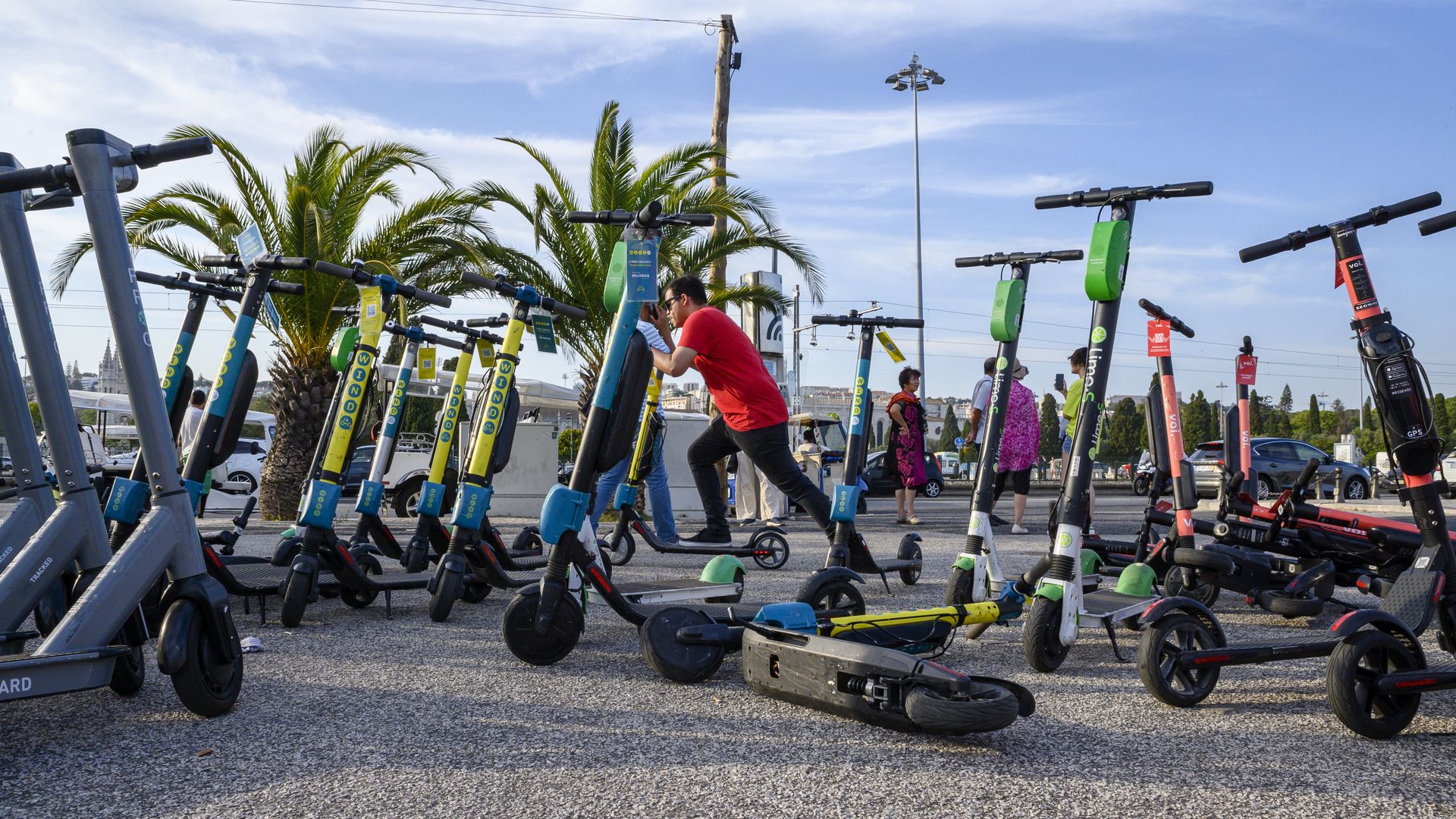Cities are trying to get ahead of future e-scooter rollouts
Add Axios as your preferred source to
see more of our stories on Google.

The scooter situation in Lisbon. Photo: Horacio Villalobos/Corbis via Getty Images.
Dockless e-scooters have arrived in cities from Austin to Paris without safety or storage guidance, resulting in imperiled pedestrians, vandalized scooters, hospitalized riders and bewildered governments — and now other cities are rushing to take proactive steps.
The big picture: Cities, especially those in the first wave to receive e-scooters, have been hamstrung in responding to unsanctioned, unregulated rollouts that call to mind Uber's playbook.
What's happening: Paris, for example, was deluged by over 20,000 e-scooters without consultation. Broken scooters have been thrown into the Seine, and victims of injuries caused by scooters are organizing to sue authorities, citing regulatory negligence.
- Cities including Chicago, Portland and Calgary have attempted to make rules proactively, permitting small-scale pilot programs and experimenting with policies and practices designed to integrate tech into the transportation landscape.
How it works: The more control a city has over traffic and roadways, and the more notice it has about the arrival of e-scooters, the stronger its position can be in responding to rollouts.
- For example, with latitude from the provincial level in Quebec, Montreal was able to negotiate before allowing a 3-year pilot program of Lime scooters that involves analyzing how they're used, particularly for “last mile” travel between transit and home.
- Montreal implemented stringent rules: Scooters are restricted to streets with speed limits under 30 mph, and they're not allowed on sidewalks. They must be parked in designated areas. Riders must be 18, licensed and helmeted, and they have to watch a training video. Additionally, Lime must share data on its fleet (including accidents, complaints and remedies), which could inform updates to the rules.
- Yes, but: The Montreal pilot program still experienced some backlash since launching in August, with complaints about sidewalk crowding, illegal parking and potential injuries.
The bottom line: The pilot program in Montreal could serve as a template for other cities anticipating e-scooter rollouts — and also for mobility tech companies.
Alex Ryan is VP of systems innovation and program director of the Solutions Lab at MaRS.
